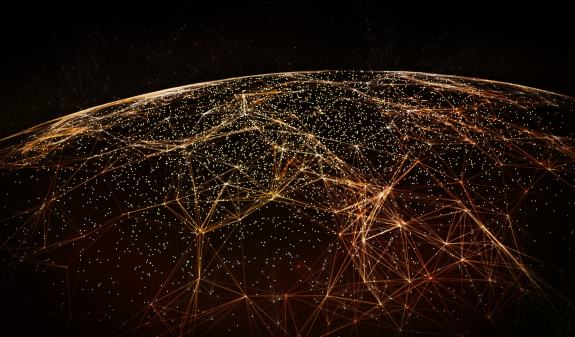VPN usage booming as uncertainty looms over Trump presidency
The presidential election is over but widely held uncertainty about the future is driving Americans to privacy-protecting software like virtual private networks (VPNs) and encrypted messaging platforms, several of which have experienced major spikes in new customers since Election Day.
GoldenFrog, a security software company, has seen its popular VPN service’s user numbers and volume “increase heavily” since the election, Liz Kintzele, GoldenFrog’s Vice President of Sales, told CyberScoop.
“The Edward Snowden announcement drove similar volume,” Kintzele said. “When Turkey blocks social media, we see similar volumes of people signing up for our service.”
Snowden’s 2013 disclosures revealing U.S. and global surveillance of the internet significantly quickened popular adoption of strong encryption tools, a fact made clear by American officials like outgoing Director of National Intelligence James Clapper as well as by statistics directly from the sort of powerful encryption software in question.
VPN Unlimited, an offering from New York-based Keep Solid Inc., has seen a 32 percent spike in downloads from the U.S. since Nov. 8, according to a company spokeswoman.
Signal, widely considered the gold standard of secure messaging apps, experienced 400 percent growth after Trump’s election, according to developer Moxie Marlinspike. Encrypted email service ProtonMail reports a doubling in sign ups from new users.
Kintzele said that her customers have been reaching out and asking what the company knows about the future of internet privacy and policy under a Trump administration.
“There’s so much uncertainty with what he’s going to do because he hasn’t defined this well,” Kintzele said, “and has been much more reactionary to certain events and said things off the cuff that creates fear and uncertainty that people are more inclined than ever to use a VPN service or sign up for one.”
Although Election Day provided a big punctuation mark, the growth seen widely by VPNs and other privacy software extends beyond that.
“There’s a lot of uncertainty for a lot of reasons right now,” James Leaverton, vice president at the security firm StackPath, told CyberScoop. “Whether it’s the hacks or whether it’s the election, whatever it may be, there’s just a lot of uncertainty and people are standing and waiting to see what happens next. There’s certainly a lot of uncertainty but it’s a culmination of a lot of things, not just one event.”
Leaverton wouldn’t directly attribute the significant growth seen at StackPath and its VPN service, Cloak, to the 2016 election but rather indicated that he saw broader growth around what feels like an endless supply of headline-making cyberattacks.
“Security is one of those strange sorts of things that everybody knows about it but nobody seems to really care or do much about it,” Leaverton said. “The Dyn attack really seemed to wake some people up.”
A massive distributed denial of service attack brought down major American websites including Twitter and eBay for several hours last month because of an attack against internet traffic management company Dyn. American lawmakers are just now beginning to reckon with the incident and its implications.
The increased public drive toward privacy-focused software sets up an inevitable battle highlighted on Friday when President-elect Donald Trump tapped Rep. Mike Pompeo, R-Kansas, as director of the Central Intelligence Agency. Pompeo has called for vastly expanding government surveillance power in the past. In a January Wall Street Journal op-ed, he argued that “the use of strong encryption in personal communications may itself be a red flag.”
With criticism from civil liberties activists and others already pouring in, Pompeo’s nomination hearings next year are expected to be contentious.
Waves of adoption for privacy software happens regularly around the world at crucial moments of change. Turkey’s increasingly authoritarian control and censorship of the internet, Russia’s widening surveillance and Ethiopia’s expanding blocks and surveillance drive are key recent and ongoing examples of events that have driven millions of people around the world to seek out software enabling open access to the internet.
“Every time something like this happens—any kind of shake up, any kind of censorship, any kind of leadership change in any area of the world” drives people to privacy software, Kintzele said.
“It would have happened under Hillary as well,” Kintzele argued. “She’s been more forthright about what she’s going to do. What happens under Donald Trump is he says such contradictory things and he says things that are so definitive but then changes his mind in the next instant.”
Kintzele said that GoldenFrog’s customers have increasingly reached out and asked what the company knows about the future of internet privacy and policy under a Trump administration.
“I think a lot of people are in a holding pattern,” Leaverton said. “Just seeing what happens next.”






